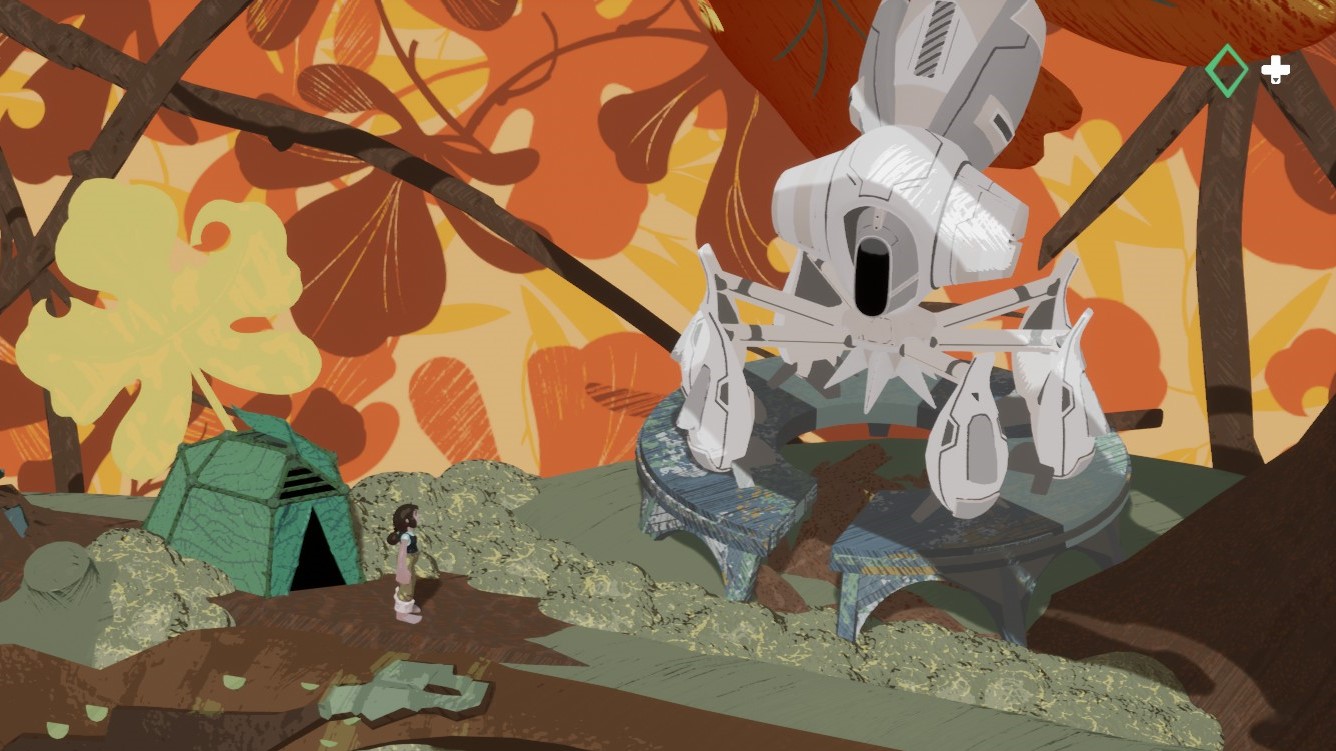Our Verdict
Piloting insect mechs in a beautifully tiny world is a breeze, but heavy resource grinding stops this adventure taking full flight.
PC Gamer's got your back
What is it? An action-adventure game where you explore a tiny world using insect-inspired mechs.
Expect to pay £15
Developer Flight School Studios
Publisher MWM Interactive
Reviewed on AMD Ryzen 5 3600, 8GB, AMD Radeon RX 5700 XT
Multiplayer No
Link Official website
Mechs in games are usually huge, hulking killing machines that can punch through buildings and crunch the earth beneath them as they stomp about. Pure metal, fuel, and rust, ready to unleash destruction and chaos. But the mechs in the adventure game Stonefly are not like that. Sure, you're still controlling a 100-tonne machine, but Stonefly's miniature mechs are light on their robotic feet, hopping and gliding with ease.
Developer Flight School Studio has left the electrifying pinball hack-n-slash action of Creature in the Well and the chilling ghost stories of Manifest 99 behind for a tranquil jaunt through nature. Stonefly is an adventure game that puts a magnifying glass over a forest's undergrowth, letting us take a peek at an entire bug ecosystem all from the safety of the world's smallest mech.
Although Stonefly's fusion of nature and engineering make for an exciting world, the game's loop of frustrating resource grinding and mission repetition stops this adventure from taking full flight.
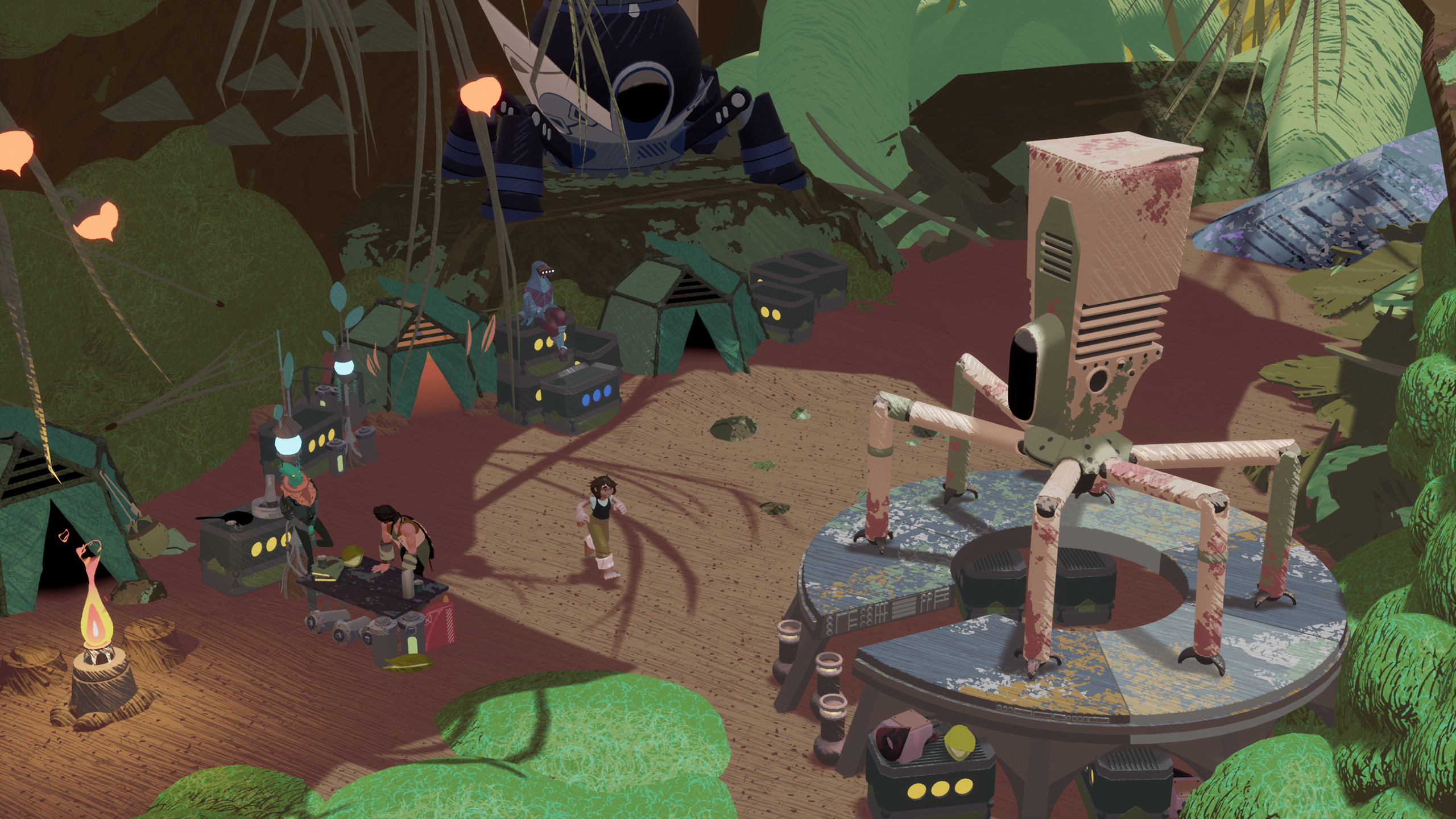
You play as a young engineer and inventor named Annika who's on a quest to find a lost family heirloom. A mysterious individual has stolen her father's rig, which was down to Annika, and so she goes on a journey to find and return it. Soon enough she meets the Acorn Corps, a group of castaways in search of an elusive piece of folklore called the Crystal Phantom. Piloting your own bug-like robot, you'll need to help Annika search the dizzying highs and dangerous lows of the forest's miniature hidden world.
The first rig you take command of feels as light as a dandelion seed, and it's visually designed that way too. Landing a mech gently on a leaf and gliding through the undergrowth on a breeze feels lovely
The best feature of Stonefly, not surprisingly, are the mechs. Not only do they look incredibly cool (a sleek modern aesthetic meets insect-inspired design) but controlling one feels effortless. Regardless of if your preference is with controller or keyboard, all the buttons are nicely mapped out, even when you start gaining a bunch of upgrades and the ability interface starts to get busy.
The first rig you take command of feels as light as a dandelion seed, and it's visually designed that way too. Landing a mech gently on a leaf and gliding through the undergrowth on a breeze feels lovely. There's weightlessness to it that other mechs games strive for the opposite of. This combined with Flight School Studio's storybook world and warm synthy soundtrack make for some excellent exploration. Landing can be a little precarious, especially as it's sometimes difficult to perceive the depth of the world, but a helpful white dot appears when you're near a landable surface, making platforming less chaotic.
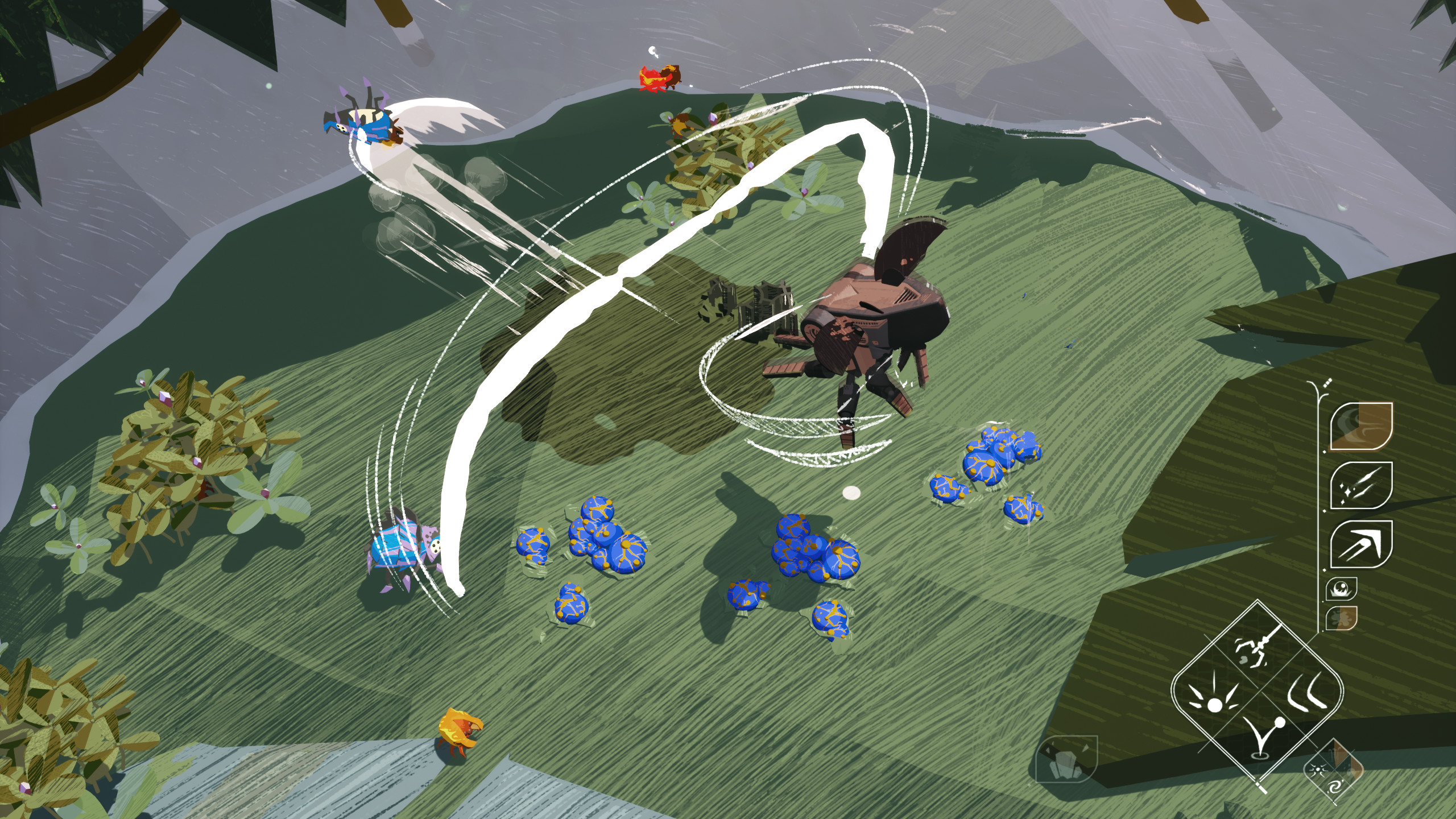
As you're wistfully exploring the world, you'll encounter different bugs and insects, but rather than just blasting them with some heavy artillery, Stonefly has a more gentle approach. You don't hurt the bugs, but push them off the edge of the area—a much more humane approach to combat. Many of Stonefly's bugs will only need a light gust to keep away, but the bigger ones will need a more hands-on approach. As you get more upgrades and encounter bigger creepy crawlies, you'll have access to a variety of different techniques for dealing with these encounters including distracting, flipping, and stunning.
Knowing how to handle each different type of bug makes for some strategic battles, and Stonefly is very generous with the mech's HP bar, letting you heal your ship mid-battle after a short cool-down. Of course, if you're bombarded too many times before you've had time to recover, your mechanical butt will be kicked right back to camp, along with all the resources gathered during that outing.
No-Fly Zone
As much as I love exploring Stonefly's colourful biomes, the game is seriously bogged down with farming materials. Resource grinding isn't something I'm usually annoyed at, but there's a lot of it in Stonefly.
Resource grinding isn't something I'm usually annoyed at, but there's a lot of it in Stonefly
Upgrading your rig back at camp is one of the main features of Stonefly, but the way you get resources through repetitive mission looping is the game's biggest issue. Materials are scattered around each biome, but only in small amounts, so unless you want to spend your time picking up small crumbs of materials, the only way to get big quantities of what you need is to do the mission called the Alpha Aphid. This mission requires you to track down a colossal bug called the Alpha Aphid, a bug that doubles as a combat area. You need to ride this giant aphid's back, fending off other bugs and gathering materials before the time runs out.
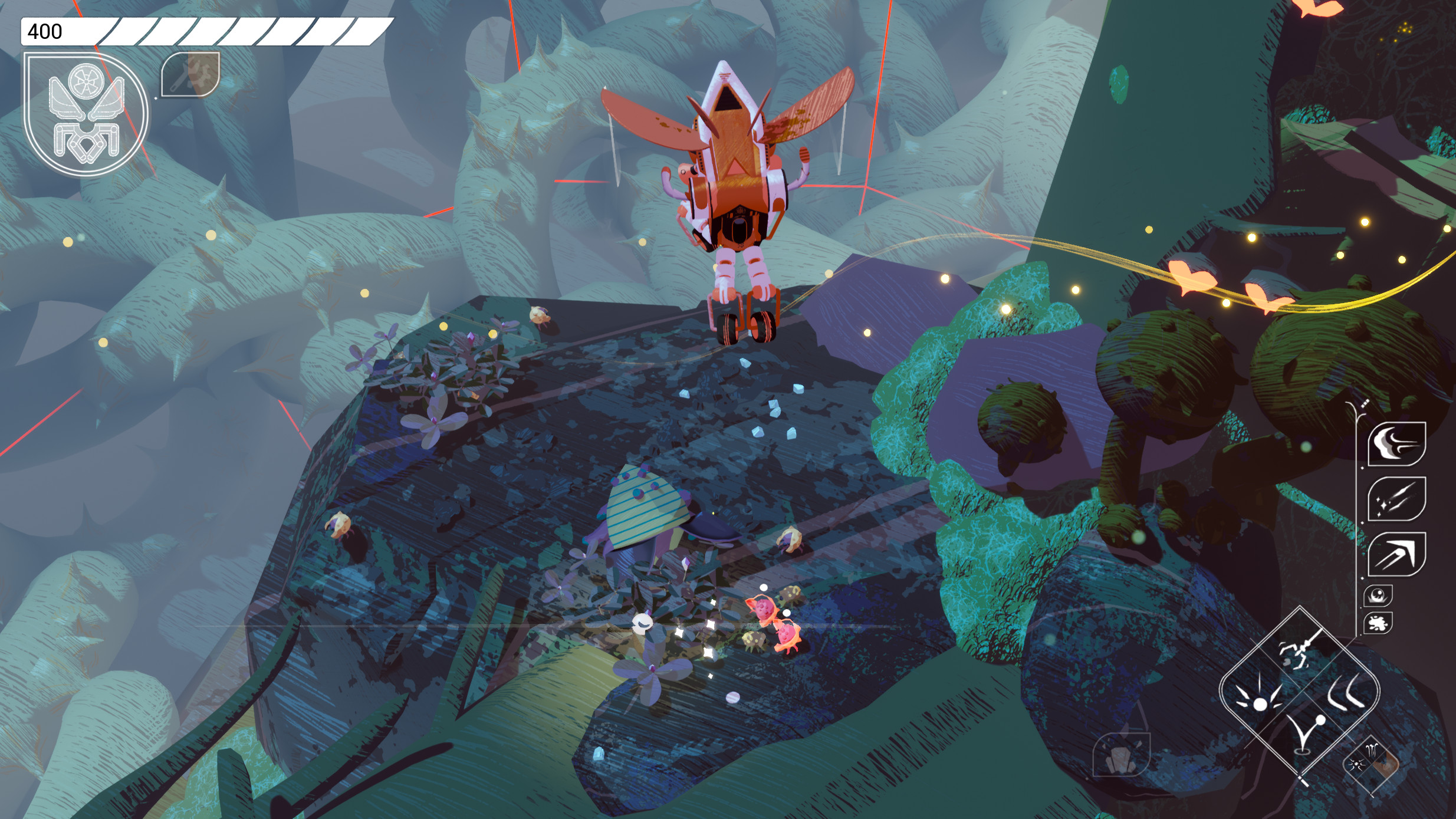
This mission is the only way to properly get the number of materials needed to upgrade your mech, and occasionally help your fellow travelers who also need supplies. The story will often not let you progress unless you have achieved certain upgrades, meaning that relentlessly grinding until you have the right materials is deeply frustrating. To complete one upgrade, I had to do the Apla Aphid mission three times in a row, each time tracking them down and then completing the combat area section.
It's unfortunate because the upgrades can dramatically switch up how you fight against bugs and non-essential abilities are worth pursuing. Annika will get inspired by the world around her and think up design ideas leading to some interesting ways you can tackle your hungry bug friends. Seeing your mech transform as it gets a new ability is rewarding, just not worth the hour of frustrating grinding it takes to get it.
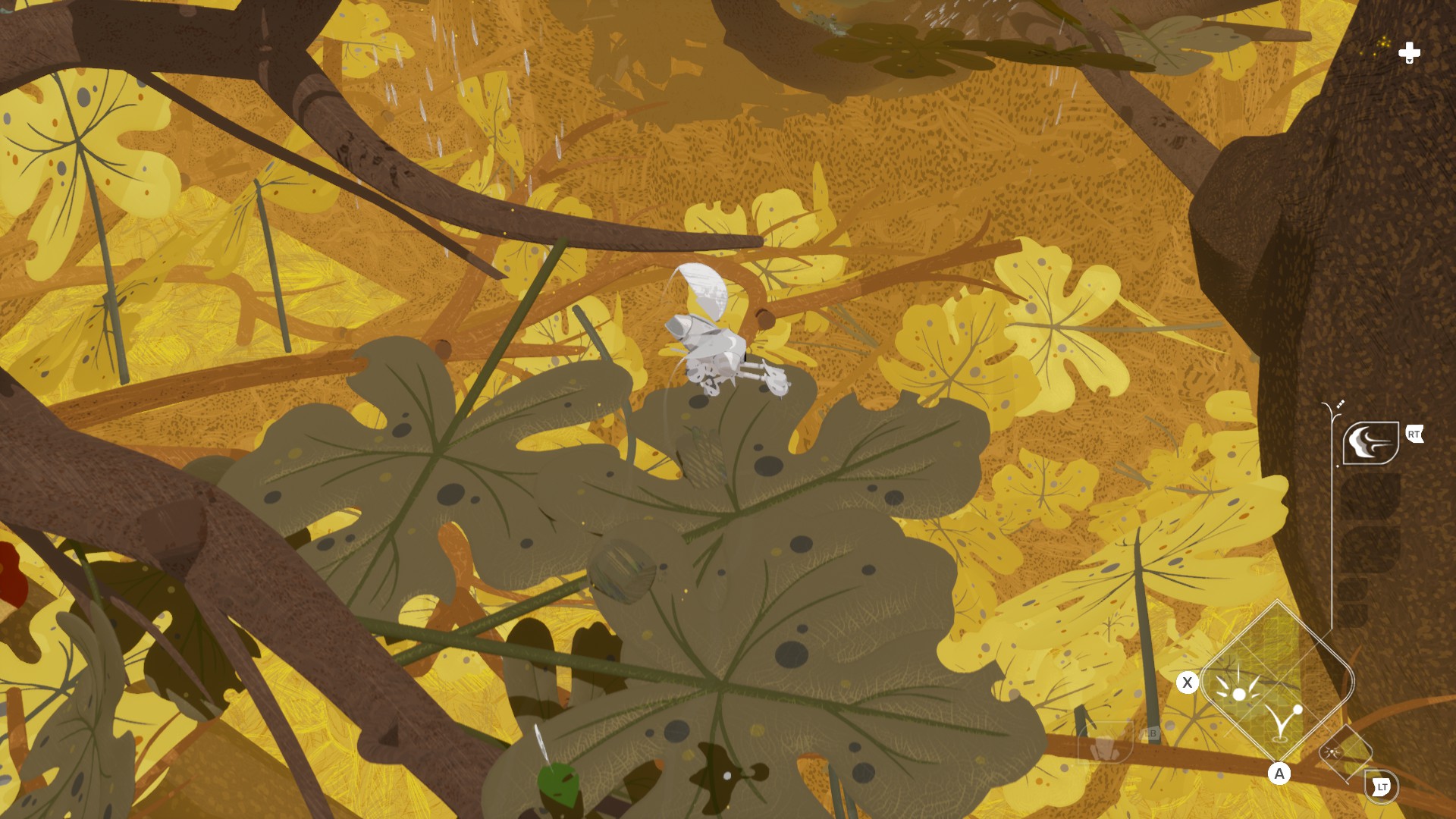
Stonefly left me in two minds. The feeling you get when you're effortlessly bouncing from branch to branch is unlike anything else I've played. I love the concept too, the idea of a mech that is not simply a killing machine, but one that has been inspired by the gentleness of nature is something I've not seen realised like this before. It's a shame that the struggle of getting materials, and lack of variety in missions, sucks the fun out of an otherwise chill game.
Piloting insect mechs in a beautifully tiny world is a breeze, but heavy resource grinding stops this adventure taking full flight.
Rachel had been bouncing around different gaming websites as a freelancer and staff writer for three years before settling at PC Gamer back in 2019. She mainly writes reviews, previews, and features, but on rare occasions will switch it up with news and guides. When she's not taking hundreds of screenshots of the latest indie darling, you can find her nurturing her parsnip empire in Stardew Valley and planning an axolotl uprising in Minecraft. She loves 'stop and smell the roses' games—her proudest gaming moment being the one time she kept her virtual potted plants alive for over a year.
